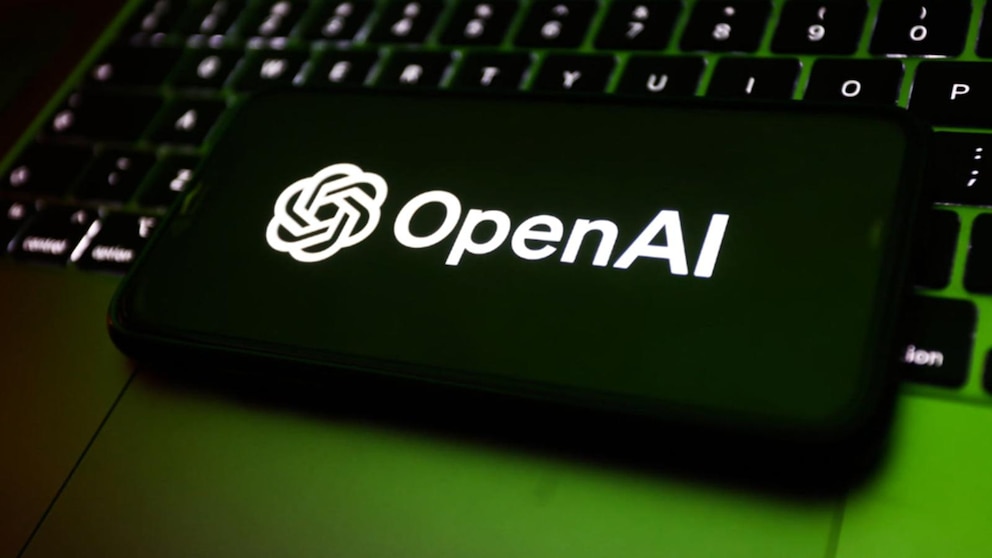OpenAI Facing FTC Investigation: Data Privacy And AI Regulation

Table of Contents
Data Privacy Concerns at the Heart of the OpenAI FTC Investigation
The core of the OpenAI FTC Investigation centers around allegations of insufficient data privacy protection and potentially misleading consumers about its data handling practices. This section explores the key data privacy concerns driving the FTC's inquiry.
Allegations of Misleading Consumers
The FTC is reportedly investigating whether OpenAI misled consumers about how their data is used to train its powerful AI models. Key allegations include:
- Lack of transparency about data collection practices: Critics argue OpenAI hasn't been clear enough about what data it collects, from where it collects it, and how this data is utilized. This lack of transparency raises serious concerns about informed consent.
- Insufficient consent mechanisms for data usage: Questions remain about whether OpenAI obtained adequate and informed consent from individuals whose data was used in its training datasets. The legality and ethical implications of using data without explicit and comprehensive consent are central to the investigation.
- Potential violations of the Children's Online Privacy Protection Act (COPPA): A significant concern is whether OpenAI's data collection practices inadvertently or intentionally violated COPPA, which protects the online privacy of children. This aspect of the investigation could result in significant penalties.
The Scope of Data Collection and its Use
OpenAI's models are trained on massive datasets scraped from the internet, raising concerns about the extent and nature of the data collected. The FTC's investigation is likely probing:
- The methods employed to acquire and curate this data: The FTC will scrutinize the techniques used to gather and prepare the data, examining whether these methods comply with existing data protection regulations and ethical standards. Concerns about web scraping and potential copyright infringement may also be involved.
- The potential for the inclusion of sensitive personal information: A key area of concern involves the potential presence of sensitive personal information within the training datasets, such as medical records, financial details, or personally identifiable information. The unauthorized use of such data would be a serious breach of privacy.
- The safeguards put in place to protect user privacy within the training process: The FTC is likely investigating whether OpenAI implemented sufficient safeguards to de-identify or anonymize personal data used in the training of its AI models, and whether these safeguards are effective.
Data Security Breaches and Vulnerabilities
The OpenAI FTC Investigation might also examine OpenAI's overall data security posture. This includes:
- Assessment of existing security measures: The FTC will evaluate the strength of OpenAI's security measures to prevent unauthorized access, data breaches, and misuse of user data. This includes examining encryption protocols, access control mechanisms, and vulnerability management practices.
- Analysis of past incidents and their impact on user privacy: Any past data breaches or security incidents will be carefully examined to assess their impact on user privacy and OpenAI's response to these events.
- Evaluation of potential vulnerabilities in the system's design: The investigation may also encompass a review of the overall system architecture to identify potential vulnerabilities that could compromise user data privacy.
The Broader Implications for AI Regulation
The OpenAI FTC Investigation extends beyond the specifics of OpenAI's practices; it has significant implications for the future of AI regulation globally.
Setting Precedents for Future AI Development
The outcome of this investigation will establish crucial precedents for the AI industry:
- Establishing clearer guidelines for data collection and usage: The investigation could lead to clearer regulatory guidelines and industry best practices for data collection and use in AI development.
- Defining responsible AI development practices: This case could help define what constitutes responsible AI development, promoting ethical considerations in the design, development, and deployment of AI systems.
- Setting expectations for transparency and accountability: The investigation highlights the growing need for transparency in AI development and the importance of holding AI companies accountable for their data practices.
Balancing Innovation with Consumer Protection
A key challenge for regulators is finding the right balance between fostering AI innovation and protecting consumers:
- Finding a balance that allows for continued AI advancement: Regulators must carefully consider how to regulate AI without stifling innovation and competition.
- Protecting user data and preventing harm: The primary goal of AI regulation should be to protect user data and prevent potential harms from biased or misused AI systems.
- Developing effective and fair regulatory frameworks: The challenge lies in creating regulatory frameworks that are both effective in protecting users and fair to AI developers.
Global Implications of AI Regulation
The impact of the OpenAI case extends beyond US borders:
- Harmonization of international AI regulations: The investigation could influence the development of international standards and regulations for AI, promoting greater consistency across different jurisdictions.
- Impact on cross-border data flows: The case could have implications for how data is transferred and processed across international borders, impacting the global flow of information.
- Influence on global AI innovation and competition: The regulatory environment established in response to the investigation will undoubtedly influence the global landscape of AI innovation and competition.
Conclusion
The OpenAI FTC Investigation marks a crucial moment in the ongoing debate surrounding AI regulation and data privacy. The potential penalties and the establishment of legal precedents will significantly impact how AI companies operate, underscoring the critical need for transparency, responsible data handling, and robust security measures. The future of AI relies on striking a balance between fostering innovation and upholding ethical standards. Staying informed about the developments in the OpenAI FTC Investigation is crucial for everyone, from AI developers to everyday users. Understanding the implications of this investigation is key to shaping a future where AI benefits society while protecting individual rights and promoting responsible AI development.

Featured Posts
-
 Live Music Consolidation The Wall Street Journals Report On Live Nations Influence
May 29, 2025
Live Music Consolidation The Wall Street Journals Report On Live Nations Influence
May 29, 2025 -
 Mstqbl Jwnathan Tah Hl Syleb Bqmys Bayrn Mywnykh
May 29, 2025
Mstqbl Jwnathan Tah Hl Syleb Bqmys Bayrn Mywnykh
May 29, 2025 -
 Regi Targyak Nagy Ertek Szazezreket Erhetnek A Lakasodban Levo Aprosagok
May 29, 2025
Regi Targyak Nagy Ertek Szazezreket Erhetnek A Lakasodban Levo Aprosagok
May 29, 2025 -
 Australian Music In Crisis Advocacy Bodys Urgent Warning To Marginal Seat Mps
May 29, 2025
Australian Music In Crisis Advocacy Bodys Urgent Warning To Marginal Seat Mps
May 29, 2025 -
 Alastqlal Mfhwm Mtjdd Ebr Alzmn
May 29, 2025
Alastqlal Mfhwm Mtjdd Ebr Alzmn
May 29, 2025
